Fear is contagious. …. So is trust.
If you have been into a supermarket over the past week you may well be asking yourself: What’s going on with people?
The supplies on the shelves are dwindling on a daily basis. That in itself is something we are not used to dealing with. It’s enough to set off our primitive survival mechanisms – already primed by COVID-19 and the recent bushfires.
Psychologically, shopping gives us an illusion of control. It alleviates the anxiety activated by uncertainty. In the absence of a clear understanding of what the next week or month looks like, at least we can shop, we can do something!
In the face of a flood we would fill sandbags. In response to the immediate threat of the bushfires, people expressed their concern by being on the firefighting frontline, through donating to others, organising community events and helping out in whatever ways they could. These activities not only expressed our care, they were a way of focussing the adrenalin that is stimulated in times of adversity.
However our reactions this time are likely to create problems, rather than help. Our panic, if we descend down that path, has the potential to manifest crises that might have been avoided.
Think for a minute about your last experience of going to the supermarket. Most people I speak with describe entering the store, ‘just to pick up a few things’. Before the double doors opened and they were met with the bedlam, their logical brain believed that they were adequately prepared to ride out a few weeks of isolation at home. And then the contagion begins. People are filled with a cocktail of confusion, disbelief and rising anxiety. Many describe starting to worry about whether they should be worrying more. And just in case, they buy more than they thought they needed, and as the shelves empty as a result of theirs and others behaviour, it still doesn’t seem enough.
The sight of empty shelves sets off a fear of scarcity, but it is the behaviour (or perceived behaviour) of other shoppers that seems to be disconcerting people the most. When we see others panicking it creates uncertainty as to whether we can rely on others if times get tough – and that’s despite Australia’s recent experience of community solidarity and strength.
There is a new intensity with which we are going about our everyday lives: a setness in our jaws, a determined focus in our walk. There is less eye contact between strangers or unnecessary banter – even at distance. I noticed it in myself today as I wandered down the street. When I breathed out my shoulders dropped … noticeably.
As a neuroscientist I am mindful of mirror neurons, a key mechanism by which infants and their primary carers, establish relationships. It is the same mechanism by which adults unknowingly influence each other’s moods. We unconsciously mirror each other’s facial expressions and gestures. If I meet you in a state of heightened arousal chances are that without realising you will also start to feel that there is something to worry about.
While we are conscious of the impact others’ behaviour has on us, we are less conscious of the flow on effect of our own state and how we in turn impact others.
We are hardwired to respond to risk. Managing our primitive instincts is something that we need to do more consciously.
So what can you do?
1. Remember, it’s not just a question of viral contagion, it’s a question of holistic well-being, which starts with your mindset.
2. Be conscious of the environments you are exposing yourself to at the moment.
3. Be intentional about the conversation you have, keep it balanced.
Why not engage in practical antidotes to the culture of fear and individualism we are witnessing at the check-out.
4. Casually connect with your neighbors.
5. Reach out to older people, who usually experience higher levels of fear as they age. Even just a smile provides reassurance that they are not alone.
6. Strengthen the networks of community, whether by phone or online.
7. If you notice a fear of scarcity, why not start sharing tins of soup, or packets of noodles with people close to you. Show them that we are still capable of giving.
Shopping needn’t be our only outlet for ‘doing something’ to prepare for the weeks to come. Even if we need to ‘isolate’ there is no need to be abandoned and alone. The fearful parts of our brain need reassurance around that right now.
Trust and confidence are built through small acts that tell us we are cared for …. Now might just be a time to practice conscious community, we don’t have to reach out physically but we can reach out in small acts of kindness and humanity.
If you would like to join our online webinars FOSTERING WELLBEING IN THE FACE OF THE CORONAVIRUS: A COMMUNITY ENDEAVOUR exploring the response to the Coronavirus over the coming weeks please register here
